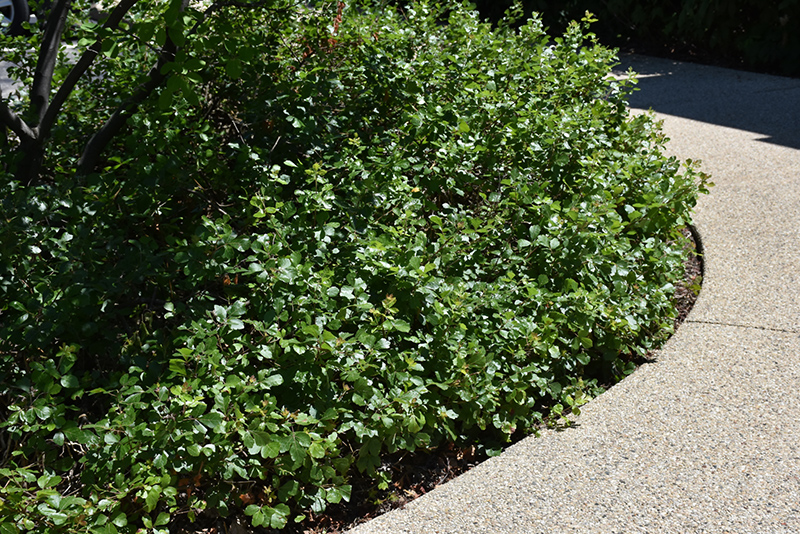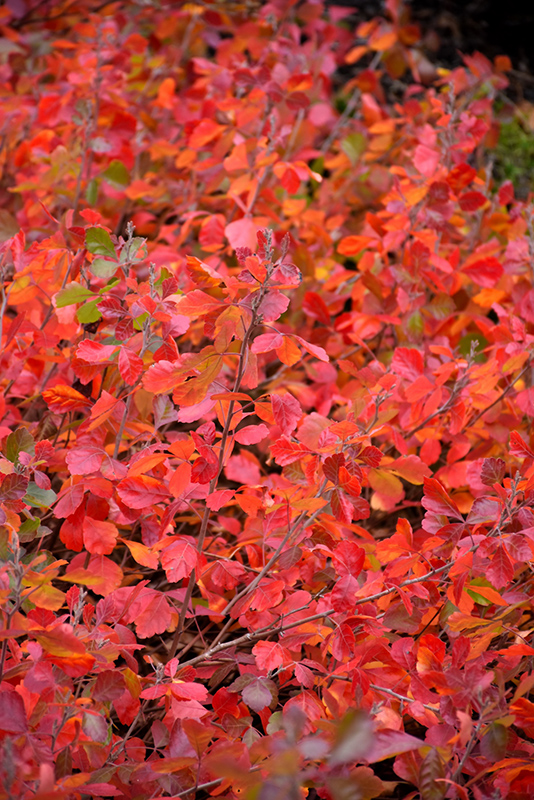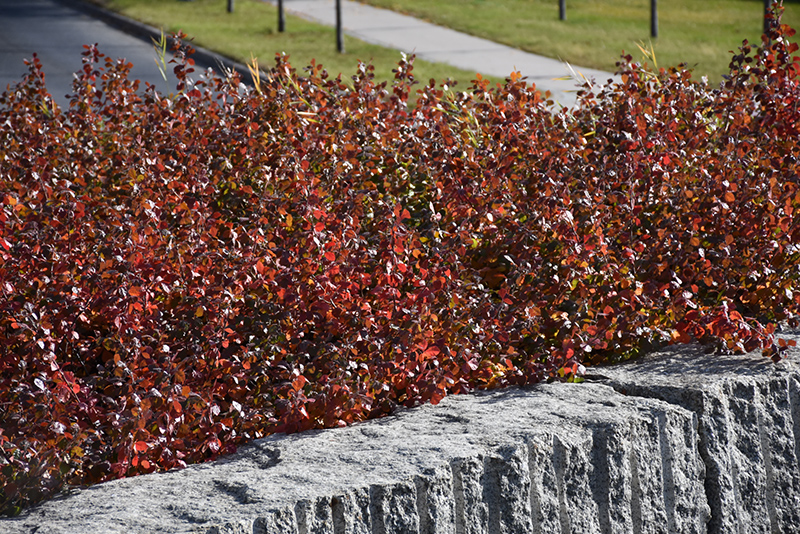Gro-Low Fragrant Sumac
Rhus aromatica 'Gro-Low'
Height: 24 inches
Spread: 7 feet
Sunlight:
![]()
![]()
![]()
Hardiness Zone: 4a
Description:
A low growing and compact shrub with interesting foliage turning brilliant colors in fall and bright yellow flowers in spring; makes an excellent groundcover as it tends to sucker, filling in areas quickly, does well in shade
Ornamental Features
Gro-Low Fragrant Sumac has yellow flowers along the branches from early to mid spring. It has green deciduous foliage. The serrated compound leaves turn an outstanding orange in the fall. The brick red fruits are held in clusters from late summer to late fall.
Landscape Attributes
Gro-Low Fragrant Sumac is a dense multi-stemmed deciduous shrub with a ground-hugging habit of growth. Its average texture blends into the landscape, but can be balanced by one or two finer or coarser trees or shrubs for an effective composition.
This shrub will require occasional maintenance and upkeep, and can be pruned at anytime. It is a good choice for attracting butterflies to your yard. Gardeners should be aware of the following characteristic(s) that may warrant special consideration;
- Suckering
Gro-Low Fragrant Sumac is recommended for the following landscape applications;
- Mass Planting
- General Garden Use
- Groundcover
- Naturalizing And Woodland Gardens
Planting & Growing
Gro-Low Fragrant Sumac will grow to be about 24 inches tall at maturity, with a spread of 7 feet. It has a low canopy. It grows at a slow rate, and under ideal conditions can be expected to live for approximately 25 years.
This shrub performs well in both full sun and full shade. It is very adaptable to both dry and moist locations, and should do just fine under typical garden conditions. It may require supplemental watering during periods of drought or extended heat. It is not particular as to soil type, but has a definite preference for acidic soils, and is subject to chlorosis (yellowing) of the foliage in alkaline soils. It is highly tolerant of urban pollution and will even thrive in inner city environments. Consider applying a thick mulch around the root zone in winter to protect it in exposed locations or colder microclimates. This is a selection of a native North American species.


